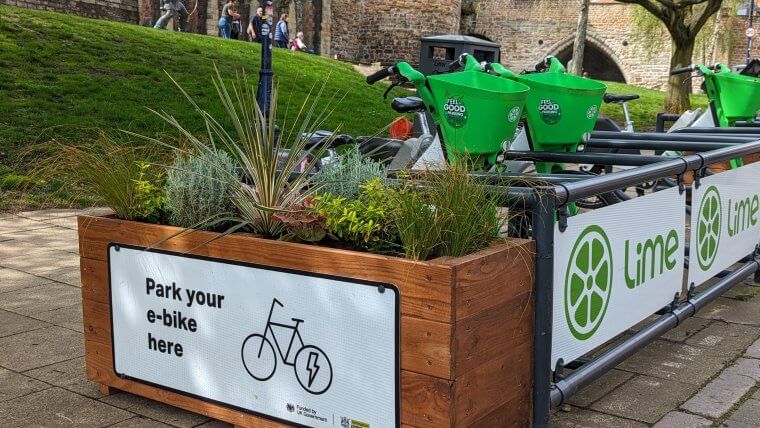26 November

30 November is Climate Action Day, and how you travel can make an impact in the fight against climate change. So, why not leave the car at home and rethink your travel habits?
So, what is climate change?
Climate change is essentially the long-term shift in earth’s weather patterns and average temperatures on a large scale. Whilst this happens naturally, human activities such as burning fossil fuels, cutting down trees, and raising livestock speed up these changes. And if you have been paying attention to the news, you would know that climate change poses a large threat.
In the UK, the increased rate of extreme weather events is already evident. In March 2018, the “Beast from the East” covered the country in snow. This was followed in April, May, June, July, and August by numerous different heatwave events. And just a few weeks ago, the midlands experienced vast amounts of rainfall that led to rivers bursting their banks, leaving peoples’ homes and lives at risk.
The UK may not feel the most extreme effects of climate change, we are part of the problem, so we must be part of the solution.
The transport sector’s impact on climate change
The transport sector is a large contributor of greenhouse gas emissions globally, and in the UK, it is just as much of a problem. In fact, in 2018, road transport accounted for 33% of the country’s CO2 emissions. This ranks it above all other sectors including energy supply.
Despite cars now being more efficient than ever, the increasing number of vehicles on our roads means greenhouse gas emissions from road transport are still increasing. In fact, vehicle numbers increased from 240,000 in 1950 to 33.8 million in 2017. These numbers have resulted in the UK being ranked the fourth most congested developed country, and third most congested in Europe. The only way to tackle these problems is to reduce the number of vehicles that exist on the UK’s roads. This can only be done if there is a shift away from personal vehicles to more sustainable public transport. In doing so, both greenhouse gas and carbon emissions can be reduced.

How using public transport can help in the fight to combat climate change
Public transport in Nottingham has the potential to play a vital role in combating climate change. The city has an expansive network of both bus and tram services at our disposal. Over 70 bus services regularly travel in and out of the city and the tram connects over 50 stops. There are plenty of sustainable options to choose from!
Less than 50% of people in Nottingham have access to a car. This is important in ensuring a decreased dependence on private vehicles. In fact, car use in Nottingham has already dropped by 7% since 2002. This mirrors a subsequent increase in public transport use of 7%. Our declining dependence on cars means that we are already bucking the trend in the city, with bus usage per head the second highest outside of London. Nottingham City Transport (NCT) alone carries approximately 37 million passenger journeys a year! Nottingham’s tram network also carried 18.8 million passenger journeys in 2018/19, which was an increase of 5.7% on the previous year. By continuing to travel on public transport, we can improve the health and well-being of citizens, and help to decrease emissions from the transport sector that would have contributed to our warming climate.

In Nottingham, we are making sure that the public transport network is as clean and green as possible. The tram runs on 100% renewable energy and Nottingham City Transport has introduced 120 biogas double-deck buses. This will help to reduce greenhouse gas emissions by up to 84% when compared to a double-deck diesel equivalent. The introduction of these shiny, new buses allowed NCT to remove some of their oldest diesel buses from service. The biogas buses reduce the amount of food waste that ends up in landfills, which would biodegrade and emit harmful gases. Instead, the methane is captured, treated and converted into fuel.
We are also working with transport operators to ensure that buses are Euro VI compliant by early 2020. This means that Nottingham’s buses will be even cleaner and reduce the emissions of harmful gases and air pollutants.
By choosing to travel by public transport once a week, you can reduce both yours and the city’s carbon footprint. There’s plenty still to do in the fight against climate change – but by rethinking how we travel can have a real impact on harmful emissions.


![MM Way Island remodel [DR April 2024 v2]](https://www.transportnottingham.com/wp-content/uploads/2024/05/MM-Way-Island-remodel-DR-April-2024-v2-760x428.jpg)


